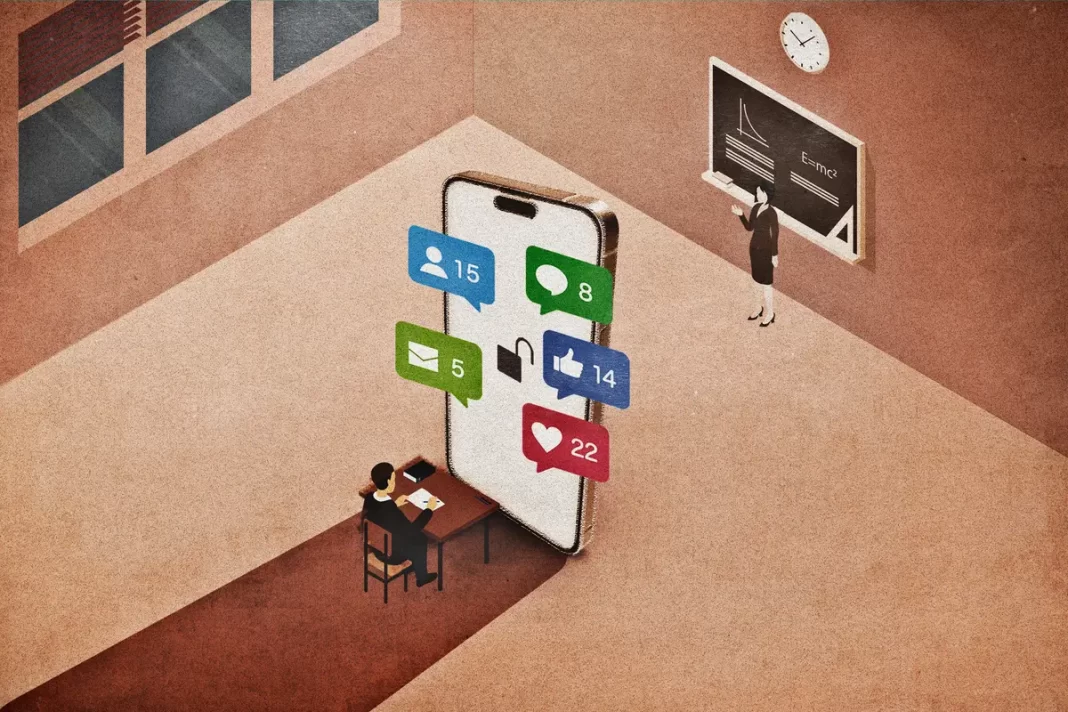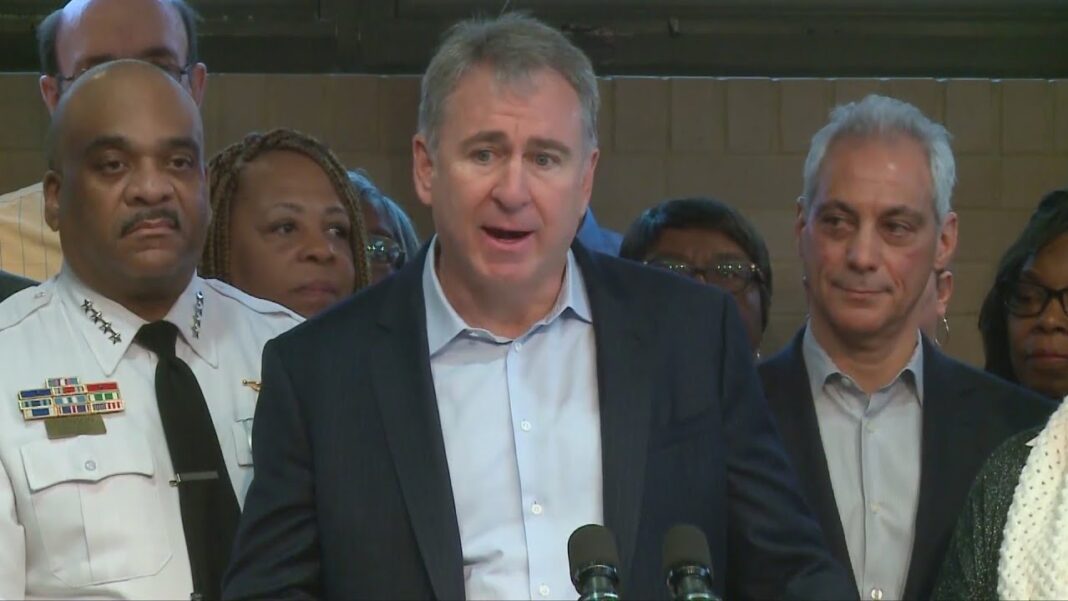Even students not using cell phones in class suffer poorer academic performance when peers use them, a study shows.
After decades in the classroom, award-winning teacher Steve Gardiner, of Billings, Montana, became acutely aware of a new problem making it difficult for his high-school students to learn.
Ironically, it was the so-called smartphone.
“The phones were disruptive and distracting—the most disruptive and distracting thing in the classroom in my 38 years of teaching,” Mr. Gardiner, now retired, told The Epoch Times.
“Students could not stop looking at them. And when they weren’t looking at them, they were thinking about looking at them. I called it an addiction.”
Experts now are calling attention to how smartphone use in the classroom can have negative effects on learning and safety at school. They show evidence that suggests allowing students to keep the devices with them during the school day leads to poorer academic performance, and sometimes even compromised safety and an increased chance of devastating consequences of bullying.
Mr. Gardiner takes teaching—and impediments to it—seriously. He holds a doctorate in education, served three years on the board of directors of the National Board for Professional Teaching Standards. He was Montana’s Teacher of the Year in 2008.
While teaching English at Billings Senior High School, he was so concerned about the impact of phones on learning that he conducted an informal survey. He asked eight business owners in town how they addressed employee use of cellphones on the job.
“It was amazing,” Mr. Gardiner said. “All but one had a variation of the same policy, and that was that texting on the job was not allowed, and an employee would be given two warnings, if caught texting, and after that, he would be terminated.”
The only exception was the local newspaper, he said, because staff sending texts “to ask questions, research, and receive information was part of the job.”
Teens Tethered to Phones
As the government response to the COVID-19 pandemic caused social isolation and prolonged absences from school, children’s time online increased dramatically.
In the United States, children and teens aged 10 to 14 more than doubled their daily time online, going from an average of 3.8 hours to 7.7 hours, according to research published in a JAMA Pediatrics research letter on Nov. 1, 2021.
By Ross Muscato









